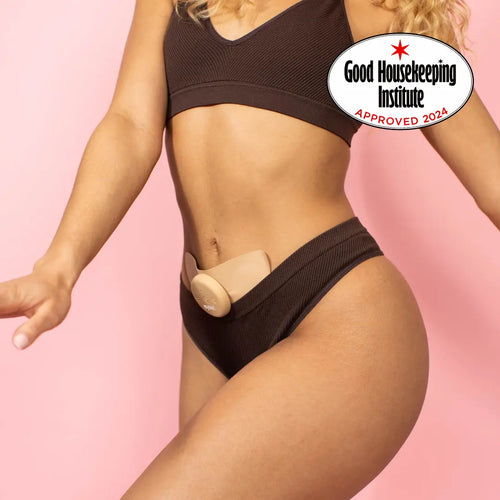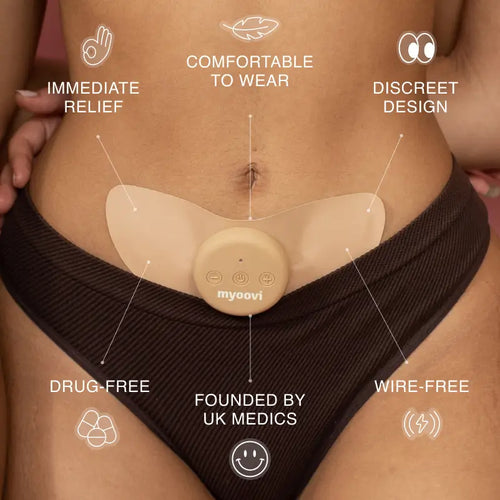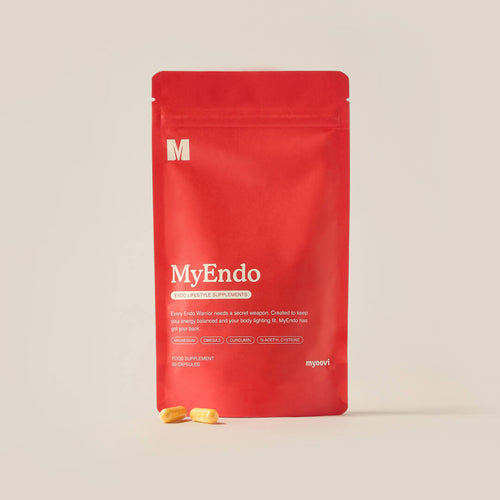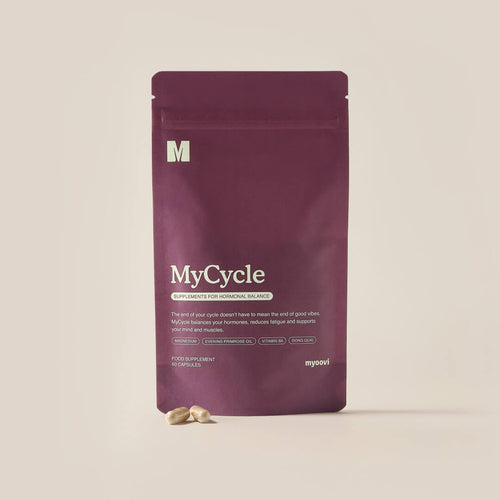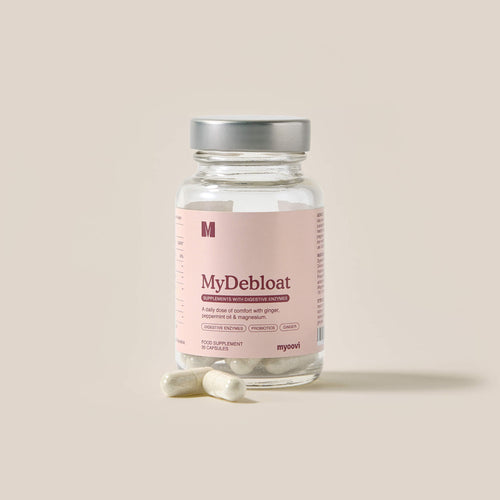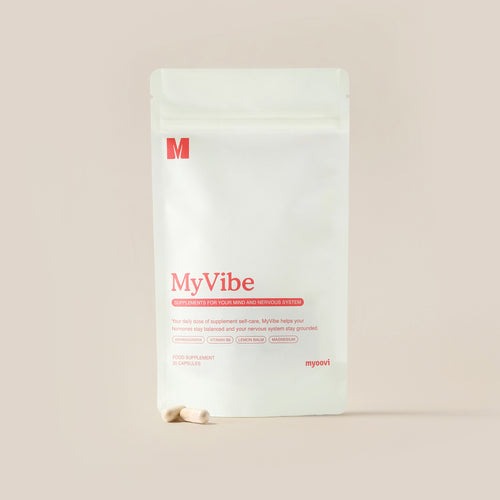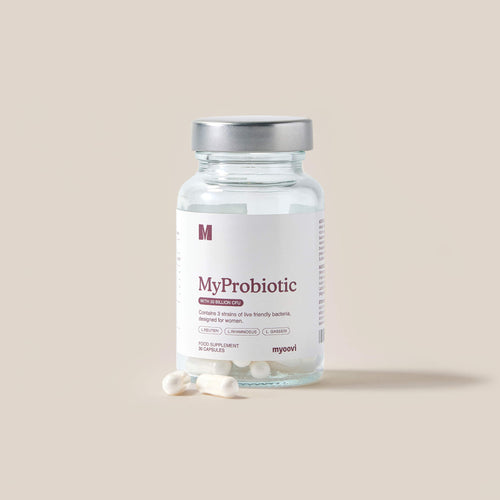The science of Happier Cycles
Apart from the fact that we have periods, few of us will have grown up with the knowledge of how the menstrual cycle actually works and how important each phase is to our overall health and well being! Here are just a few tips on how to optimise your current cycle phase, but this is only one piece of the period health puzzle…
Keep your eyes on your inbox in the coming weeks as we’ll be moving through your cycle with you and sharing advice from our holistic menstrual health handbook.
Your Current Phase:
Menstruation
Winter
What's happening?
What’s happening? It sounds like you’re currently in your Menstruation phase - so you’re either on your period as we speak, or it’s just ending.
Timescale:
Typically 3-7 days.
Symptoms:
Cramping, bleeding, bloating, and fatigue.
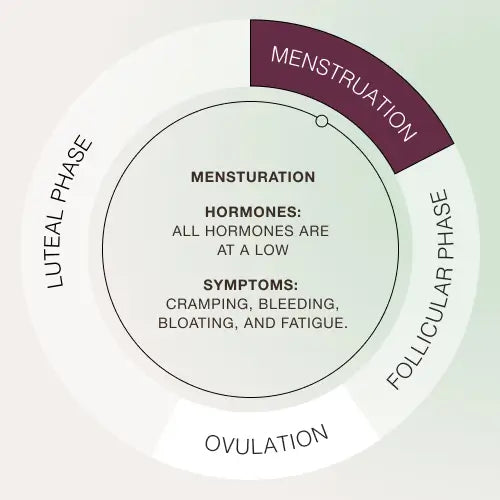
So what’s going on biologically right now?
Well, obviously, the biggest thing that’s going on for you physically, is that your womb is shedding its lining - or endometrium.
Everyone’s flow is unique, but generally speaking, we would expect a healthy period to last between 3 and 6 days and the average person releases around 30-50 millilitres of blood, so around 6-10 tampons worth.
Well, in terms of your hormones, your Oestrogen and progesterone levels are pretty low, as they dip right at the end of your cycle to trigger the start of your bleed. As your period progresses y
our Oestrogen levels will begin to slowly rise (and this means your mood usually will improve too!)
Did you know…. How you treat your body throughout the rest of your cycle can impact how intense your period symptoms are!
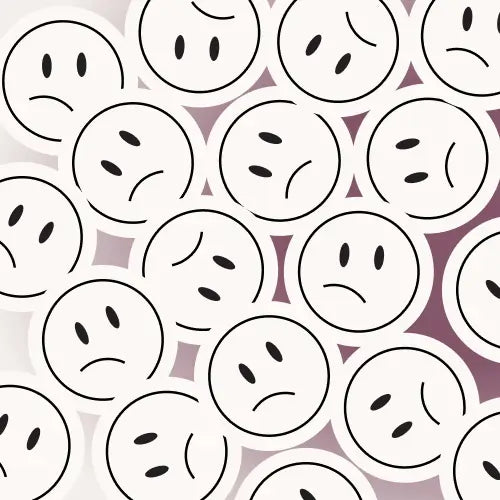
For the first couple of days of your bleed, it’s not uncommon to feel pretty fatigued - your body is busy doing something pretty incredible after all.
You might also suffer from pain and cramping - and whilst a little discomfort is normal during your winter phase, if you are in agony, or it’s impacting your life, definitely go and see a doctor, as it’s probably a sign that something isn't right.
The good news is that, if you struggle with low mood in your luteal phase (so if your PMS is pretty intense!) you might find yourself feeling a lot better once your period arrives and your Oestrogen levels start to rise.
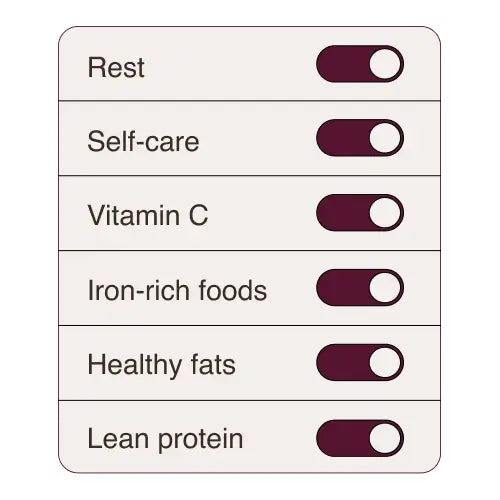
Movement
Rest is pretty key when it comes to your Menstruation phase - but that doesn’t mean you have to stay at home wrapped in a blanket the whole time.
Moving your body is a great way to relieve period pain and tackle fatigue - so try to engage in some low-impact exercises like walking or yoga.
Nutrition
Whilst your energy levels might be low, your body is very busy making your period happen - so when it comes to nutrition, support your energy stores with lots of lean protein and healthy fats!
As you’re bleeding, you might also be losing iron, so try to replenish it with iron-rich foods like red meat, lentils and beans and dark leafy greens such as spinach and kale. It’s also important to ensure your Vitamin C levels are topped up - as Vit C can help with the absorbance of iron - so go to town on that fresh orange juice.
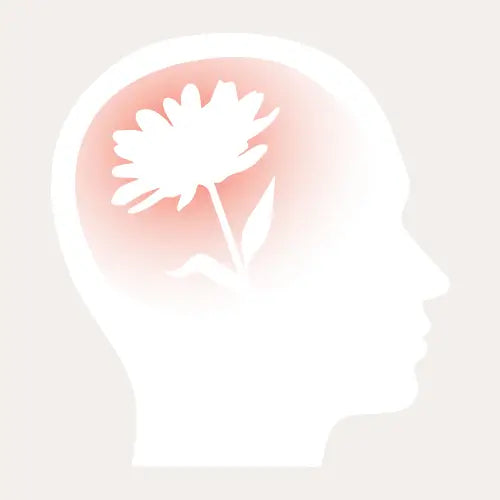
There’s a reason that Menstruation is known as Winter - and that’s because it’s the perfect time to hibernate. You may feel a little withdrawn or sensitive during this time, and that’s ok! Feel no shame in cancelling those plans and enjoying some alone time. Make self-care a priority and try to keep things slow and simple, so you don’t feel overwhelmed.
The Science of Your Cycle

So what’s going on biologically right now?
Well, obviously, the biggest thing that’s going on for you physically, is that your womb is shedding its lining - or endometrium.
Everyone’s flow is unique, but generally speaking, we would expect a healthy period to last between 3 and 6 days and the average person releases around 30-50 millilitres of blood, so around 6-10 tampons worth.
Well, in terms of your hormones, your Oestrogen and progesterone levels are pretty low, as they dip right at the end of your cycle to trigger the start of your bleed. As your period progresses y
our Oestrogen levels will begin to slowly rise (and this means your mood usually will improve too!)
Did you know…. How you treat your body throughout the rest of your cycle can impact how intense your period symptoms are!
How you might be feeling

For the first couple of days of your bleed, it’s not uncommon to feel pretty fatigued - your body is busy doing something pretty incredible after all.
You might also suffer from pain and cramping - and whilst a little discomfort is normal during your winter phase, if you are in agony, or it’s impacting your life, definitely go and see a doctor, as it’s probably a sign that something isn't right.
The good news is that, if you struggle with low mood in your luteal phase (so if your PMS is pretty intense!) you might find yourself feeling a lot better once your period arrives and your Oestrogen levels start to rise.
How to nourish your body

Movement
Rest is pretty key when it comes to your Menstruation phase - but that doesn’t mean you have to stay at home wrapped in a blanket the whole time.
Moving your body is a great way to relieve period pain and tackle fatigue - so try to engage in some low-impact exercises like walking or yoga.
Nutrition
Whilst your energy levels might be low, your body is very busy making your period happen - so when it comes to nutrition, support your energy stores with lots of lean protein and healthy fats!
As you’re bleeding, you might also be losing iron, so try to replenish it with iron-rich foods like red meat, lentils and beans and dark leafy greens such as spinach and kale. It’s also important to ensure your Vitamin C levels are topped up - as Vit C can help with the absorbance of iron - so go to town on that fresh orange juice.
How to nourish your mind

There’s a reason that Menstruation is known as Winter - and that’s because it’s the perfect time to hibernate. You may feel a little withdrawn or sensitive during this time, and that’s ok! Feel no shame in cancelling those plans and enjoying some alone time. Make self-care a priority and try to keep things slow and simple, so you don’t feel overwhelmed.
Your holistic menstrual health toolkit
